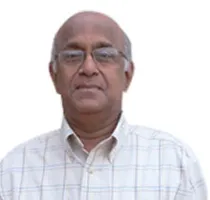Following the defeat of the Democratic Party of Japan (DPJ) in the House of Councillors’ election, Prime Minister Naoto Kan’s position has become much weaker and looks very much similar to that of former Prime Minister Shinzo Abe in 2007. Like Mr. Kan, Mr. Abe had faced a stinging defeat in the Upper House election in 2007 which compelled him to step down as Prime Minister. His two successors Mr. Yasuo Fukuda and Mr. Taro Aso had to face serious challenges posed by the divided Diet and despite enjoying a two thirds majority in the House of Representatives, normal legislative agenda became extremely complex and time-consuming.
Though Mr. Kan is not likely to resign at the moment, already some voices are heard from within the DPJ that he should own up the responsibility for the electoral debacle and step down. The only consoling factor for Mr. Kan was that he took over as Prime Minister only in the first week of June , a mere five weeks before the election and that too in the midst of an unprecedented crisis situation. But the expectations that the DPJ would weather the crisis under his new leadership and retain at least its prevailing numerical strength in the Upper House were not fulfilled. Many in the party believe that Mr. Kan’s conflicting statements during the election campaign on the question of consumption tax created confusion among voters and caused a steep fall in popular support. Mr. Kan’s present tenure as Party President will last until September 2010 and if he wants to continue beyond that period, then he has to demonstrate his “extraordinary political skills” to run the administration in a manner that inspires his own party as well as the Japanese people and keeps the legislative processes steadily on the move. It is indeed a daunting challenge.
Contrary to the expectations that the DPJ would at least secure 54 seats in the election to maintain its existing strength in the Upper House, it managed to win only 44 seats which means that its total numerical position has come down to 106 from 116. The DPJ therefore needs 16 more seats to have the barest majority in a House which has a total of 242 seats. Since its electoral ally -- the People’s Party -- has only 3 seats, the DPJ has to look to other smaller parties for support. But under the present circumstances marked by uncertainties, no party wants to have any truck with the DPJ. For instance, a new party called Your Party – a breakaway group from the LDP – has a tally of 11 seats, and naturally, the DPJ would like to take it in its coalition. But its leader Mr.Yoshimi Watanabe has categorically rejected any proposal to support the DPJ Government. He said, “Forming a coalition with the DPJ is out of the question. We cannot cooperate with a party that has a different agenda.” Another party that could really tilt the political balance in this murky situation is the New Komeito Party with 19 seats. But having been a coalition partner of the LDP for years, it sees no political compulsions or gains to shift its loyalty at this juncture.
While Mr. Kan has expressed his resolve to stay on at the helm, it is still not clear as to how he will manage his legislative agenda in view of the changed complexion of the Upper House. He has hinted that he would like to have prior consultations with opposition parties to arrive at consensual decisions on important issues. But given the present political atmosphere, it is easier said than done. According to the Constitution
(Article 59), if a bill is rejected by the House of Councillors, it can still come into force if it is passed a second time by the House of Representatives by a majority of two thirds or more of members present. This method, though unpopular and time-consuming, was resorted to by the LDP-led administrations earlier since the party had a two thirds majority in the Lower House. But since the DPJ does not enjoy two thirds majority in the House, it will not be in a position to carry through those bills rejected by the Upper House. The opposition LDP-New Komeito coalition is very much in a mood to exploit this weakness of the DPJ
Having won 51 seats in the election, the LDP wants to take advantage of the current legislative deadlock to get the Lower House dissolved and fresh elections held. Since several important bills on postal reforms, consumption tax, relocation of the US military base in Okinawa, etc, are likely to be taken up by the Diet, the opposition will naturally exploit the ‘divided Diet ‘ to immobilize parliamentary proceedings and force fresh elections to the Lower House. The success of the LDP in the July 11 election is nothing but an unexpected windfall since it enjoyed very little credibility with the voters. From now on, it will try its best to revive its political fortunes by working for an early dissolution of the Lower House. As for the voters, while they are disenchanted with the disappointing performance of the DPJ, it is still not clear whether they are in a mood to forgive the past misdeeds of the LDP.
(Prof. K.V. Kesavan is a Distinguished Fellow at Observer Research Foundation)
The views expressed above belong to the author(s). ORF research and analyses now available on Telegram! Click here to access our curated content — blogs, longforms and interviews.

